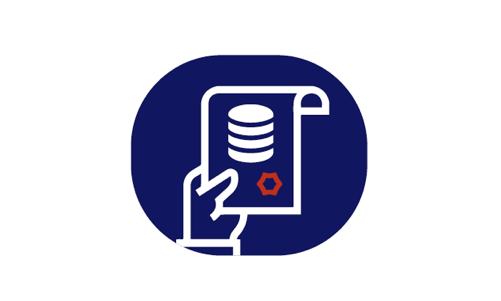MassCUE Grant Funding in Action
Usable Math Generates Math and Design Learning
for Elementary Students
by Sharon A. Edwards, Robert W. Maloy, Sai Gattupalli, Marguerite Rancourt
Since February 2023, with support from a MassCUE Classroom Grant, the Usable Math project team from the University of Massachusetts Amherst College of Education in partnership with a teacher at the Discovery School at Four Corners in Greenfield, Massachusetts has greatly expanded its online math learning resources and its outreach to teachers, students, and schools. Our design work is continuing and further site development and educator outreach are planned for summer 2023 and the 2023-2024 school year. The following is a summary of what we have accomplished so far and our plan for going forward.
Developing Online Math Problem Solving Modules
We have designed, refined, and published online 17 free and open math problem solving modules for teachers to use with students in third, fourth and fifth grade classrooms as well as in after-school and outside-of-school educational settings (Table 1).
Table 1. Usable Math Problem Solving Modules
| Math Concept Modules: |
|---|
| Division; Rounding; Algebraic Thinking; Decimals; Measurement; Geometry: Lines & Lines of Symmetry; Geometry: Maps/Grids/Ordered Pairs; Geometry: Figures & Angles; Charts and Graphs; Money; Add & Take Away; Place Value; Fractions; Estimation |
| Math, Storywriting, History, and Science Modules: |
| Jenny-the-Forester: A Math & Storywriting Adventure; Tai-the-Historian Time Travel Adventure; Jenny-the-Fisher Math & Citizen Science Adventure |
Collectively, these modules include over 100 math word problems taken from publicly-released math achievement tests as well as invitations within modules for students to write their own math problems with answer choices, problem-solving hints, and growth mindset-building affirmations.
Each math module has between 5 and 10 math word problems, addressing a core math concept that is part of the state’s mathematics curriculum framework for elementary school learners. A module about Measurement, for example, focuses on units of measurement: inches, meters, time, and lengths. Every math problem within each module includes ideas and strategies offered by four online math friends or coaches who use words, pictures, gifs, charts, and animations to show alternative approaches to solving math word problems:
- Reading comprehension – Estella Explainer
- Number operations – Chef Math Bear
- Strategic thinking – How-to-Hound
- Visualizing concepts – Visual Vicuna.
Equity in Math Learning
We are developing Usable Math as an open online site for teachers, tutors, students and families to illustrate three key dimensions of equity in math learning.
“Usable” means:
- U Able — every young math learner can be a math problem solver.
- Us Able — students, teachers, tutors and families in classrooms and other settings can be math problem solvers.
- Usable — anyone is able to develop their math problem solving skills and concept knowledge with practice and support from technology tools and online coaches.
Who is Using Usable Math
We published the site online for educators and students around the world and we demonstrated Usable Math to college students planning to become future educators. With the grant from MassCUE, we established a primary partnership with a class of 17 fourth graders at the Discovery School at Four Corners in Greenfield, Massachusetts who together with classroom teacher Margaret Rancourt have been using the site since February 2023. Then when the materials were purchased with the MassCUE grant funding, we introduced the use of iPads to their learning for the end of the school year in May and June. We are continuing this partnership with the teacher and students throughout the 2023 -24 school year. Beginning in September introducing the iPads and Usable Math to a new class, we will be visiting monthly to offer resources and to talk with students about what they are doing with their learning. During the 2023 summer vacation weeks, we plan to introduce the site and the iPads to students enrolled in summer school programs in Amherst and Holyoke, Massachusetts.
During fall 2022 and spring 2023, we shared the site and the iPads with college students enrolled in Education 497I (Tutoring in Schools), a four credit undergraduate class in the College of Education taught by Robert Maloy and Sharon Edwards. Many of these students plan to become elementary or secondary school teachers. All of the college students were introduced to the site in the course, using laptops, phones and the iPads to explore and give feedback to us about the math learning modules. Several college students tutoring elementary age students as part of the course activities introduced younger learners to Usable Math for at home and in school tutoring. They then commented to us about the children’s responses to the modules and their desire to use them again and to show them to their friends.
Online, the site is being viewed and used throughout the United States as well as internationally. Here is a link to the most recent Usable Math Traffic Report. We have also submitted papers to two academic journals, Mathematics Teacher K-12 and Digital Connections in Mathematics Education. On May 30, we presented the site and showcased the iPads as math learning tools at the Berkshire Resources for Learning and Innovation (BRLI) 2023 Teaching With Technology Conference in Pittsfield, Massachusetts.
Students Designing Their Own Math Learning Slideshows
From the outset, we have sought to document impacts of Usable Math on students’ learning. One exciting and unexpected development has been how 4th graders at the Discovery School, after completing Usable Math learning modules, began designing their own math learning slideshows using NoCode online tools, specifically Google slides. With NoCode tools, students can create content on screen-based canvases or templates using drag-and-drop elements and media placeholders to create text, images, sound, and more.
Students at the Discovery School followed the model of Usable Math and wrote their own math word problems along with answer choices, problem-solving strategies, and growth mindset-building affirmations. We are learning that when students as young programmers design their own math slideshows, they utilize design-based thinking, practice multiple ways to solve word problems, and develop growth mindsets as confident math learners.
Conclusion
We are deeply grateful for the support given to the project by a MassCUE Classroom Grant. It has propelled Usable Math forward, expanding its reach and impacting student learning in multiple ways. We look forward to continuing to develop and share what we learn with Usable Math at the MassCUE fall conference and beyond.
Sharon A. Edwards, Robert W. Maloy, Sai Gattupalli, and Marguerite Rancourt are educators in the College of Education, University of Massachusetts Amherst. Usable Math is free and open online at https://usablemath.org/.
Usable Math Team Members Sai Gattupalli, Sharon Edwards, and Robert Maloy (l to r)
at the Berkshire Resources for Learning and Innovation Conference, May 30, 2023
 Print this post
Print this post



